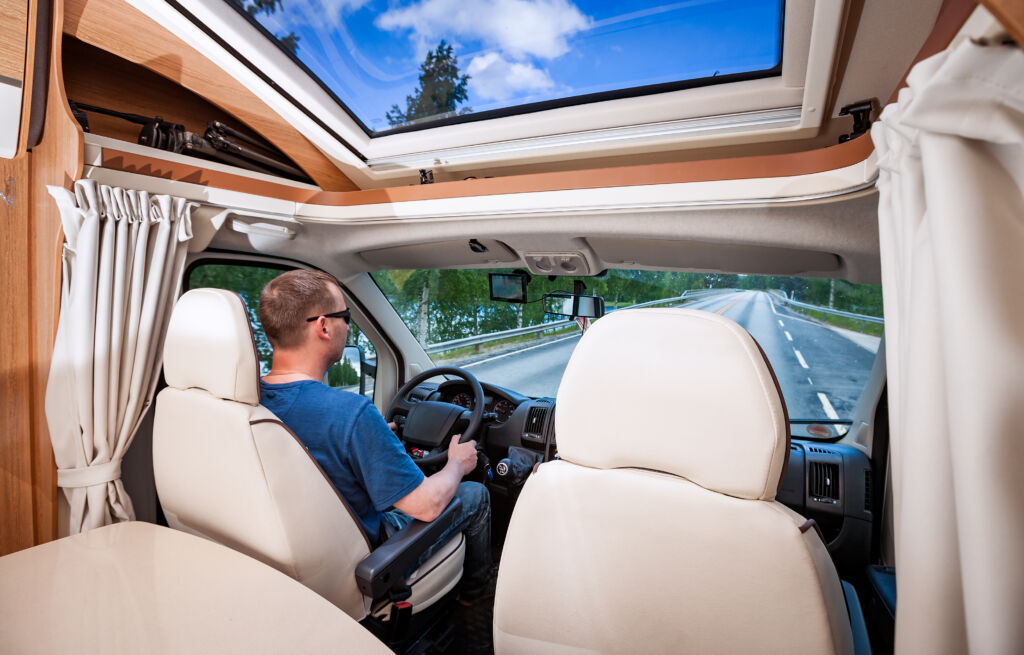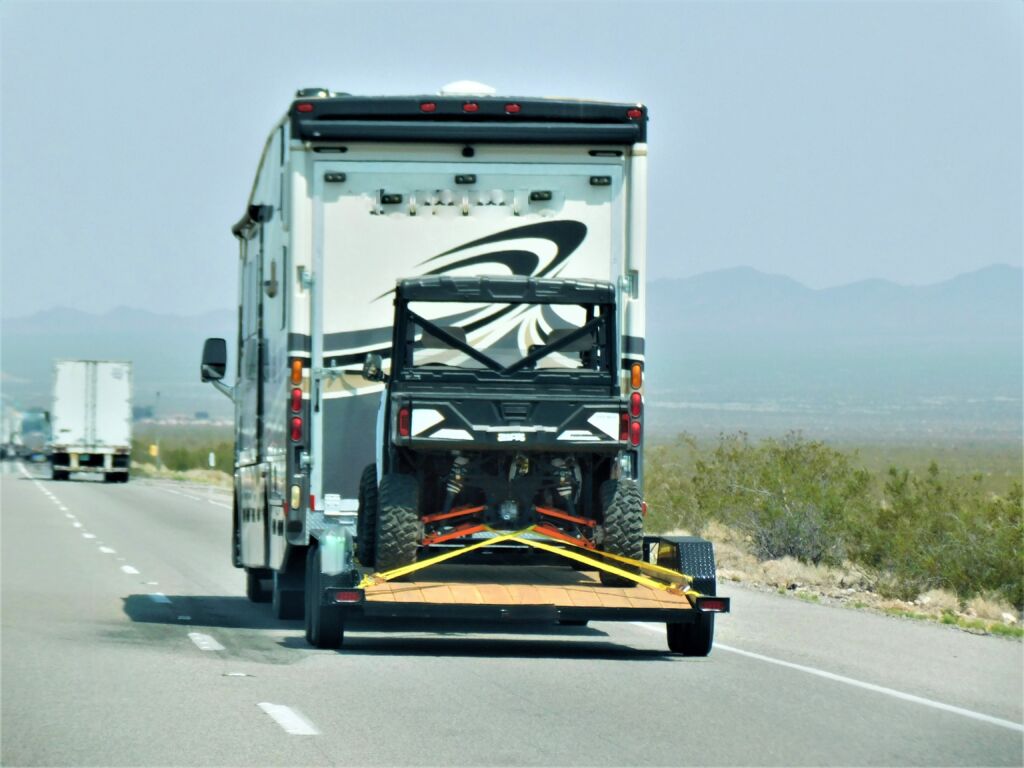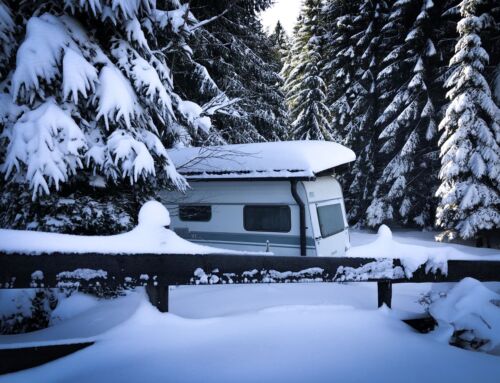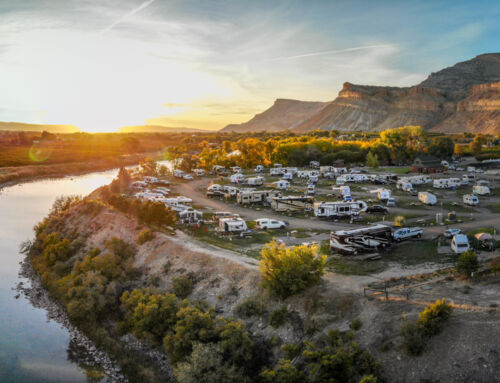Packing for your first trip in your new RV but not sure where to start? At Palisade Basecamp, we know that planning an RV adventure can feel overwhelming, which is why we’ve created this RV camping tips for beginners guide to help you hit the road with confidence.
This guide covers essential RV safety tips, how to check your RV’s systems, understand weight limits, and pack smart so you can hit the road ready for the perfect camping adventure.
1. Practice Parking and Driving Your RV
If you’re new to parking or driving an RV, practice before your trip to build confidence. Start in an open space, such as an empty parking lot, where you can maneuver freely and learn to level and stabilize your RV.
Once you feel comfortable, progress to more challenging parking situations and heavier traffic. This preparation ensures your RV stays steady and helps prevent issues like leaks from the refrigerator or propane tanks.

2. Systems Check

Checking your RV’s systems might feel tedious, but it’s worth it. Detecting issues before you hit the road can prevent costly breakdowns and ensure a safer, more enjoyable trip. This step is essential for both new and experienced RVers.
Pre-Trip RV System Checklist:
- Engine: Verify smooth operation before each journey.
- Air Conditioner: Conduct maintenance and cleaning, especially prior to summer travel.
- Refrigerator: Confirm proper cooling and secure connections.
- Generator: Test for reliable starting and running.
- Washer: Ensure functionality and correct connections.
- Brakes: Inspect for safety and responsiveness.
- Lights (Interior & Exterior): Replace any burnt-out bulbs.
- Alarm System: Confirm all alarms are operational for safety.
Extra Tip: Use this as an RV checklist to cover all key systems. It helps you stay organized and ensures nothing is overlooked before your camping adventure.
3. Know Your RV’s Weight Limits and Towing Capacity
Understanding your RV’s weight limits is critical for both safety and performance. Overloading your RV or exceeding towing capacity can put unnecessary strain on the engine, damage tires, or even cause dangerous accidents on the road.
Every RV comes with specific weight guidelines, including towing capacity, tire limits, and maximum cargo load. You can find these details in the manufacturer’s manual or by searching your RV model online.
Taking the time to understand these limits will help you avoid breakdowns, extend the life of your RV, and most importantly, keep you safe during your travels.

4. RV Living Must-Haves for New Camper Owners

RVing is a unique experience compared to staying in a hotel—you’ll need to bring along essentials that keep you comfortable, safe, and prepared for different situations. Some RV living must-haves include:
- Weather-appropriate clothing (rain gear, warm layers, breathable clothes for heat and humidity)
- Medications and first aid supplies
- Toiletries and cosmetics
- Basic tools for quick fixes
- Food and snacks
- Cleaning products
- Cooking supplies and utensils
- Bedding and sheets
Packing smart ensures you’re prepared for different climates and situations, making your trip smoother and more enjoyable.
At Palisade Basecamp RV Resort, we hope these RV camping tips for beginners make your trip easier and more enjoyable. When you are ready to explore the western slope of Colorado, we would love to be your home base.



